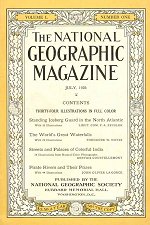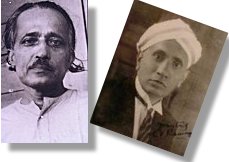Contents of Kamat Research Database
First Online: January 11, 2005
Page Last Updated: December 07, 2024
The following are some of the highlights of Kamat Research Database. At this time the database includes over 15,000 entries and new contents are being actively added.
Indian Philately
The stamps of India truly represent India's vast cultural and geographic diversity. Common and rare stamps from private collections include pictures of ancient saints, freedom fighters, famous Indians, and places.
|
The Congress Archive
Few organizations in the world have as long and illustrated history as the Indian National Congress, and the organization has been at the forbearer of India's agenda for over a hundred years. This collection includes biographies of important men and women of India during 19th and 20th centuries.
|
National Geographic on India
National Geographic Magazine is a premier and authentic source of socio-anthropological information about every country and region. We have abstracted each and every article published by National Geographic on India dating back to 1900. A wonderful resource with custom abstracts written by Kamat editorial team.
|
Kamat Photo Archive
Kamat was a tireless photographer and a selfless researcher and many things not available to common researchers were accessible to him. A true treasure-trove of photographs document every aspect of India during the fifty years of Kamat's active photography. An extraordinary collection of inscriptions, sculptures, tribal people, common people, and rural India.
|
Who's Who and Biographies
Kamat Research Database is perhaps the single largest source of reference on India's who's who from ancient times to present day. Also included are over 300 biographies. Kamat Research Database contains family trees of many former rulers, artists, and scholars, and is a great source of reference to study time-periods, influences, and genealogy. The database contains over hundred rare portraits of Indian writers and poets. This is a primary source of pictures for editorial use.
|
Summary of ContentsOther Features
|
See Also:
![]()






